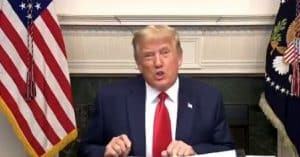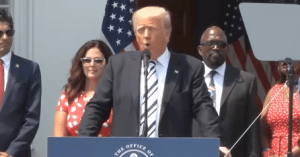Trump's federal election interference case gets rolling again in wake of SCOTUS ruling
In the wake of numerous false starts and stops, a key ruling from the U.S. Supreme Court has breathed life back into the federal election interference case against former President Donald Trump.
The Jan. 6-related case brought against Trump by special counsel Jack Smith is poised to resume now that U.S. District Court Judge Tanya Chutkan has reclaimed jurisdiction following the high court's decision and set an upcoming hearing date in the matter, as ABC News reports.
Trump case restarts
Now that the controversy involving Trump has been returned to her purview, Chutkan has set a hearing for Aug. 16 at 10:00 a.m., time that will mark the first instance in seven months that the parties in the case will have convened.
Notably, Chutkan also denied a Trump legal team motion to dismiss the case on statutory arguments.
The judge did, however, indicate that the former president's lawyers will have a chance to refiled their motion once the court completes its process of reviewing the charges in the complaint in light of the Supreme Court's recent decision on immunity, the pendency of which was the cause of the many delays in the D.C.-based matter.
SCOTUS decision reframes Jan. 6 controversy
Last month, in a 6-3 decision, the Supreme Court determined that presidents possess absolute immunity from prosecution for conduct deemed within the core constitutional powers of the office.
The majority also found that presidents are afforded a presumption of immunity in relation to “acts within the outer perimeter” of official duties.
As a result, Chutkan will now bear responsibility for applying those principles to the allegations leveled against Trump by Smith in the case involving the aftermath of the 2020 presidential election.
The judge will need to make determinations of whether the conduct at issue falls into the “official” or “private” categories for purposes of immunity.
Appeals court hand-off paves the way
Chutkan's resumption of work on the Trump case comes after the controversy was returned to her jurisdiction by the U.S. Court of Appeals for the District of Columbia Circuit, which had previously denied the former president's immunity claims, but was subsequently reversed by the Supreme Court.
The appeals panel accomplished that task via an unsigned order vacating its Feb. 6 judgment, doing so “in light of the Supreme Court's judgment filed August 2, 2024.”
Though Chutkan had initially set a March 4 trial date in the matter, the voluminous subsequent appeals proceedings and now the need for her to apply the Supreme Court's recently announced immunity standards means that the case will not come to conclusion ahead of the November election, and that is an outcome for which the Trump team hoped all along.




